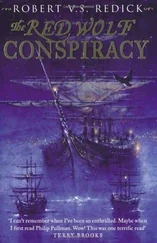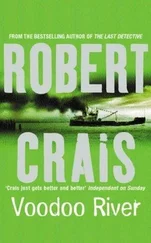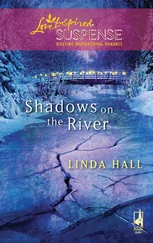Robert Redick - The River of Shadows
Здесь есть возможность читать онлайн «Robert Redick - The River of Shadows» весь текст электронной книги совершенно бесплатно (целиком полную версию без сокращений). В некоторых случаях можно слушать аудио, скачать через торрент в формате fb2 и присутствует краткое содержание. Жанр: Фэнтези, на английском языке. Описание произведения, (предисловие) а так же отзывы посетителей доступны на портале библиотеки ЛибКат.
- Название:The River of Shadows
- Автор:
- Жанр:
- Год:неизвестен
- ISBN:нет данных
- Рейтинг книги:4 / 5. Голосов: 1
-
Избранное:Добавить в избранное
- Отзывы:
-
Ваша оценка:
- 80
- 1
- 2
- 3
- 4
- 5
The River of Shadows: краткое содержание, описание и аннотация
Предлагаем к чтению аннотацию, описание, краткое содержание или предисловие (зависит от того, что написал сам автор книги «The River of Shadows»). Если вы не нашли необходимую информацию о книге — напишите в комментариях, мы постараемся отыскать её.
The River of Shadows — читать онлайн бесплатно полную книгу (весь текст) целиком
Ниже представлен текст книги, разбитый по страницам. Система сохранения места последней прочитанной страницы, позволяет с удобством читать онлайн бесплатно книгу «The River of Shadows», без необходимости каждый раз заново искать на чём Вы остановились. Поставьте закладку, и сможете в любой момент перейти на страницу, на которой закончили чтение.
Интервал:
Закладка:
“But that is not the worst of it,” said Ibjen. “Sire, you must tell them about human beings.”
“Yes,” said Hercol, “I should like to know what part we played in this tale.”
“A great one, as it happens,” said Olik. “The human mind-plague was only beginning, in tiny outbreaks we chose to ignore. But no humans, Nemmocians, atrungs or selk were ever trusted with Plazic Blades. Only dlomu. And because dlomic hands alone grasped the power, it was easy, and tempting, to push the races further apart. We were the mighty, the feared. They were leaner and shabbier, and their famished eyes made it hard to enjoy our plunder.
“Because humans were the most numerous, they made us the most uneasy. We began to live apart, more and more, and to restrict humans to the labor we disdained: the hard labor, that is. We compelled them to build our ships, forge our armor, march behind us as vassals in our war-trains. It was not long before this servitude decayed into outright slavery.”
“So we were slaves before we were animals,” said Chadfallow. “Is that what our would-be killers meant by the Old Sins?”
“They go by that name, yes,” said the prince. “Slavery, and later the denial of the plague. For all this time the tol-chenni affliction was spreading: a blighted village here, a swirl of panic there. And we dlomu, drunk on conquest as we were, could not make ourselves pay attention.
“But human beings did, of course. The first uprisings were on the borders of the slave-lands, and they were brutally repressed-townships razed, prisoners driven over cliffs at spear-point. And still we were afraid. We imagined that all humans wished us death, even those who swore their loyalty. This terror was magnified by new losses on the battlefield. The Plazic Blades had begun to disintegrate, to rot away. Their owners became irrationally suspicious, accusing one another of tricks, curses, theft. They slew one another over the blades, one man coveting another’s, especially if it seemed less corrupted. A few even fell to our enemies: the commander of the Karyskans who attacked your ship had a Plazic Knife. I expect he used it to strengthen his men.”
“How many were there, the keepers of these blades?” asked Pazel.
“A few hundred in all the Empire,” said Olik. “Some were minor figures, like Counselor Vadu. Others really did walk the earth like Gods-mad Gods, blinded and diseased. They could not rest. They bled the Imperial coffers dry. The War Forges blazed day and night; some were consumed by their own flames or exploded, and whole regions of Bali Adro were laid waste.
“Then, very suddenly it seemed, we woke to find our slaves stolen from us. It took but three decades for the plague to destroy every human mind in Bali Adro. And without them our Empire was crippled. The Blades gave us the power to destroy, not to build or nurture. Without human labor, we were titans of straw. We could not even feed ourselves.
“We lashed out. Karysk and Nemmoc remained to be conquered, as did some mountain regions, like the interior of this great peninsula. Enemies surrounded us, we thought, and if they were not killed, we would be. In growing delirium, our generals drove their armies to superhuman feats: marching them six hundred miles in as many days-only to see them collapse on the eve of battle, victims of a starvation the magic had disguised. Such blindness! All our worst wounds have been self-inflicted. The armada may destroy the realm of Karysk, but it will do nothing to save Bali Adro from itself.”
“You sound as though you’ve lost all hope,” said Thasha.
“Do I?” said Olik. “Then I must beg your pardon. I have not lost hope. Perhaps that is because I did not have to witness all these horrors unfolding. Ten years after that breakfast with my father I sailed into the Nelluroq on my doomed expedition, and the time-shift robbed me of eight decades. When I left Bali Adro I was still a thoughtless young man. The Platazcra was well under way, but our fortunes had not yet turned. I had a son of nine years and had wearied of raising him-and of his mother, truth be told. I thought a year or two away might help me tolerate them better. And though troubled by the Empire’s wars, I still accepted the verdict of my elders, who gave the name of Glory to all that murder, greed and gobbling.
“When I returned, our nation’s back was broken. Human beings were almost extinct; the other races were scattered; woken animals were no more to be seen. Laughter was cruel, poets mad or silent, temples were converted to armories and barracks, schools to prisons, and the old world, my world, was a thing forgotten. That was despair, Lady Thasha, and I barely survived it. Yet from that blackest pit strange gifts have come to me. Like Mr. Bolutu, I am a window on a vanished world, a spokesman of sorts for Alifros-that-was. When I accepted that bitter truth, I found my life’s purpose. I became a Spider Teller, and in time a chasmamancer, and there has been more joy in the fellowship of those impoverished wizards than ever I knew in palace or keep. I fell in love with learning, and out of love with the family cult. I met Ramachni, and his wisdom strengthened me in my resolve. ‘You are a fine mage, Olik,’ he said at our last meeting, ‘but you are also a warrior. You will fight less often with your hands than with your mind and heart, but you will fight ceaselessly, I think. A wiser path for all Alifros-that shall be what you fight for. That, and the extinction of madness and greed.’ Thus he spoke, and thus it has proved to this day.”
Thasha’s whole face had brightened at the mention of Ramachni. Suddenly she gripped the prince’s hand, startling him. “I’d hoped from the beginning that you were allies,” she said. “I’ve been praying you’d help us find him, or help him return to us. Now I’m certain you’re going to do just that.”
Olik gazed at Thasha: a humble glance, such as Pazel would scarcely have thought possible on the face of royalty. Just like Bolutu, he thought. They hang on her every word. They know, blast it. They know the truth about her. And he resolved to corner Bolutu at the next opportunity, to wring it out of him. Arunis was gone; no one was spying on his thoughts. What possible excuse for secrets was there now?
Suddenly all the dogs barked in unison: the signal, said Olik, that they were nearing the palace. Rows of soldiers flashed by. Olik signaled them with a wave, then looked at Thasha again.
“Yes, I still hope, lady,” said Olik, “but that hope has been sorely tested. One reason is personal. Do you recall what I told you of the Karyskans, and why they pursued me?”
“You said they mistook you for someone else in the royal family,” said Thasha, “for the one who wanted to attack them.”
“Yes,” said Olik, “and I cannot blame them for the mistake. I sailed openly into their waters, and at first they welcomed me. But Karysk has certain spies in Bali Adro, and as I was making ready to depart these spies returned, and declared that they had seen my face in Orbilesc, pressing rabidly for the launch of the armada. Today the Issar’s message has confirmed my worst suspicion: that rabid warmonger is my grandson. We are alike as two peas in a pod.”
The others stared a moment. Then Pazel gasped. “The Red Storm,” he said. “You sailed away and left a son, and he-”
“Had a son as well, in time. When I returned I found my own son a frail old man, and his child grown to manhood. We have the same features, the same name-and thanks to the Red Storm, very nearly the same age. But Olik the Ninth hates this Olik the Seventh. He is a Plazic warlord; like Vadu he carries the stump of a Blade. I am sure he thinks of me as some sort of maukslarin, a demon made in his image, sent from Elsewhere to oppose him. There are days when I fancy he’s correct.
Читать дальшеИнтервал:
Закладка:
Похожие книги на «The River of Shadows»
Представляем Вашему вниманию похожие книги на «The River of Shadows» списком для выбора. Мы отобрали схожую по названию и смыслу литературу в надежде предоставить читателям больше вариантов отыскать новые, интересные, ещё непрочитанные произведения.
Обсуждение, отзывы о книге «The River of Shadows» и просто собственные мнения читателей. Оставьте ваши комментарии, напишите, что Вы думаете о произведении, его смысле или главных героях. Укажите что конкретно понравилось, а что нет, и почему Вы так считаете.












